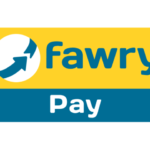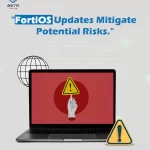Vulnerability Assessment Vendors are companies that provide software and services to help organizations identify and assess security weaknesses in their systems and applications.
In today’s increasingly interconnected world, cybersecurity threats are constantly evolving. Organizations of all sizes face growing cyberattacks, making it critical to identify and address vulnerabilities in their systems and applications proactively.
Vulnerability Assessment Vendors play an essential role in helping organizations achieve this. These companies provide software and services that enable organizations to:
- Identify vulnerabilities: Discover and Identify security weaknesses in their systems, applications, and networks.
- Assess risk: Prioritize vulnerabilities based on their severity and potential impact.
- Remediate vulnerabilities: Develop and implement remediation plans to address identified vulnerabilities
- Improve overall security posture: Gain a comprehensive understanding of their security posture and make informed decisions about their security investments.

Vulnerability Assessment Vendors: How to Find the Right One
Selecting the right Vulnerability Assessment Vendors is crucial for the success of your security program. So when you choose the right vendor you need to consider the following factors:
- Comprehensive Coverage:
Ensure the vendor’s solution covers the entire attack surface, including on-premises and cloud environments, servers, workstations, applications, databases, and mobile devices. Verify if the solution supports the operating systems, applications, and databases used within your organization.
- Ease of Use and Integration:
Choose a solution with an intuitive user interface that is easy to use and integrates seamlessly with your existing security tools and workflows.
- Accuracy and Reliability:
Prioritize vendors with a proven track record of accurate and reliable vulnerability assessments. Look for solutions that minimize false positives and false negatives, providing you with a clear and accurate picture of your security posture.
- Actionable Insights:
Seek solutions that provide actionable insights and guidance for remediation. Look for features such as prioritized vulnerability lists, remediation recommendations, and integration with vulnerability databases. Additionally consider solutions that provide context around vulnerabilities, such as exploitability and potential impact.
- Reporting and Analytics:
Choose a vendor that provides clear, concise, and customizable reports and dashboards. Look for features that allow you to easily track progress, identify trends, and demonstrate compliance with industry regulations.
- Support and Maintenance:
Ensure the Vulnerability Assessment Vendors provide excellent customer support, including 24/7 availability, knowledgeable support staff, comprehensive documentation, and regular product updates.
Common Types of Vulnerabilities Assessment Vendors
Vulnerability Assessment Vendors can be categorized based on their primary focus and the types of vulnerabilities they specialize in identifying:
- General Vulnerability Assessment Vendors:
These vendors offer comprehensive solutions that cover a wide range of vulnerabilities across various IT assets.
Examples: Tenable, Qualys, Rapid7, Microsoft
- Application Security Vendors:
These vendors specialize in identifying vulnerabilities within applications, such as web applications, mobile apps, and APIs.
Examples: Synopsys, Checkmarx, Veracode
- Network Security Vendors:
These vendors focus on identifying vulnerabilities within network infrastructure, such as firewalls, routers, switches, and other network devices.
Examples: Cisco, Juniper Networks (though they offer a broader range of solutions)
- Endpoint Security Vendors:
These vendors focus on identifying vulnerabilities in endpoints, such as workstations, laptops, and mobile devices.
Examples: CrowdStrike, SentinelOne, McAfee
- Cloud Security Vendors:
These vendors specialize in identifying vulnerabilities within cloud environments, such as AWS, Azure, and GCP.
Examples: Orca Security, Lacework, Wiz
This categorization helps organizations better understand the strengths and specializations of different vulnerability assessment vendors and choose the best solution for their specific needs.
7 Best Vulnerability Scanners
- Tenable.Nessus:
- Strengths: Industry-leading vulnerability scanner with a comprehensive database of known vulnerabilities. Offers excellent reporting and integration capabilities.
- Best for: Comprehensive vulnerability assessments across various IT assets.
- QualysGuard:
- Strengths: Cloud-based platform with a user-friendly interface. Provides a holistic view of security posture, including vulnerability management, compliance, and security risk assessment.
- Best for: Organizations seeking a cloud-based solution with strong compliance features.
- Strengths: Offers a comprehensive platform that combines vulnerability management, threat detection and response, and penetration testing capabilities.
- Best for: Organizations seeking an integrated security platform.
- Microsoft Defender for Cloud:
- Strengths: Deeply integrated with Microsoft Azure, providing comprehensive security coverage for cloud workloads. Offers strong threat intelligence and advanced threat protection capabilities.
- Best for: Organizations heavily invested in the Microsoft ecosystem.
- Synopsys:
- Strengths: Specializes in application security, offering robust solutions for static and dynamic application security testing (SAST and DAST).
- Best for: Organizations with a strong focus on application security.
- Acunetix:
- Strengths: A leading web application security scanner, particularly strong at identifying vulnerabilities in web applications and APIs.
- Best for: Organizations with a significant web presence and a need for comprehensive web application security testing.
- OpenVAS:
- Strengths: A popular open-source vulnerability scanner that provides a robust and cost-effective solution for organizations of all sizes.
- Best for: Organizations seeking a free or open-source alternative with a strong community and active development.
This list provides a starting point for your research. The best choice for your organization will depend on your specific needs, budget, and the complexity of your IT environment.
Conclusion
Vulnerability Assessment Vendors evaluating your specific needs and considering the factors outlined above, you can select the most suitable Vulnerability Assessment Vendor to enhance your organization’s security posture.
Implementing a robust vulnerability management program is crucial in today’s threat landscape. By proactively identifying and addressing vulnerabilities, organizations can significantly reduce their risk of cyberattacks, improve their overall security posture, and ensure the confidentiality, integrity, and availability of their critical data and systems.
FAQs
Q: Why are vulnerability assessments important?
Vulnerability assessments are crucial for enhancing security posture. They proactively identify and mitigate risks, provide valuable insights for security investments, and ensure compliance. By addressing vulnerabilities, organizations significantly reduce the risk of cyberattacks.
Q: How often you should conduct vulnerability assessments?
The frequency of vulnerability assessments varies depending on organizational needs and risk tolerance. Recommended practices include frequent scans (daily, weekly) to address emerging threats, more in-depth quarterly or semi-annual assessments for a comprehensive understanding, and periodic penetration testing to simulate real-world attacks.
Related posts:
 Fawry comments on cyber attacks and data leaking
Fawry comments on cyber attacks and data leaking
 Effective Policy for data retention policy best practices
Effective Policy for data retention policy best practices
 the Latest fortinet vulnerability 2024
the Latest fortinet vulnerability 2024
 What Is ISO 27001?, Core Principles, Benefits, and Requirements
What Is ISO 27001?, Core Principles, Benefits, and Requirements
 Cylance Protect Antivirus for Your Digital Assets
Cylance Protect Antivirus for Your Digital Assets

![Rapid7 Vulnerability Management]](https://meta-techs.net/wp-content/uploads/2025/03/What-is-Rapid7-Vulnerability-Management-1.webp)